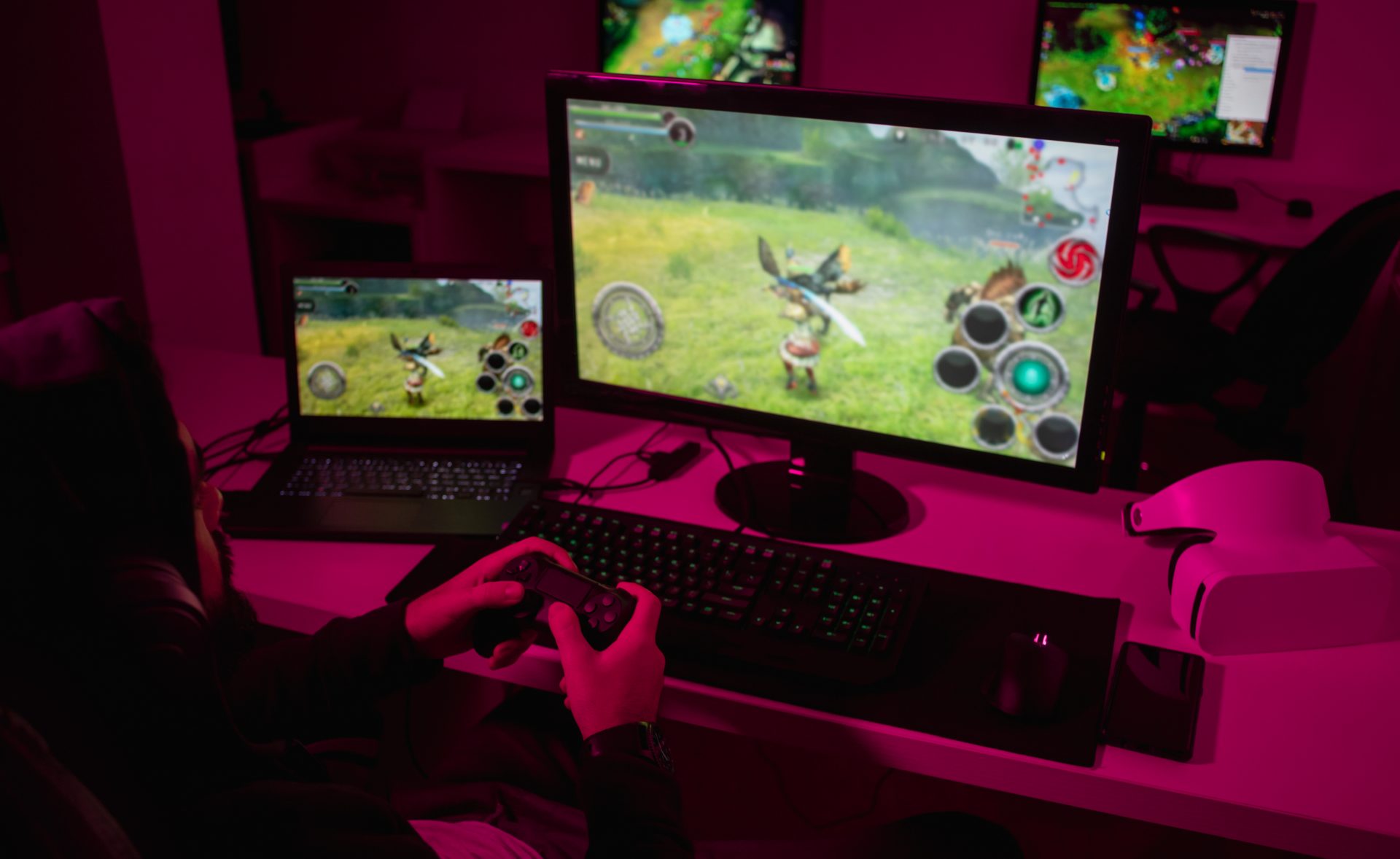Introduction
Game engines have come a long way from simple rendering tools to powerful platforms capable of creating highly immersive, visually stunning, and interactive experiences. Today, they are not only used for video games but also for film production, architectural visualization, virtual reality (VR), augmented reality (AR), and AI-driven simulations.
With engines like Unreal Engine, Unity, Godot, CryEngine, and proprietary in-house engines, developers have access to a wide range of tools, features, and real-time rendering capabilities. But how do these engines shape modern game development, and which one is the best choice for different projects? Let’s dive in.
1. What is a Game Engine?
A game engine is a software framework that provides tools and libraries to develop, render, and manage interactive applications. It typically includes:
✔ Rendering Engine – Handles graphics and visuals in 2D or 3D.
✔ Physics Engine – Simulates real-world physics, such as gravity and collisions.
✔ Scripting System – Allows developers to write logic and game mechanics.
✔ Animation & AI – Enables character animations and non-player character (NPC) behavior.
✔ Networking – Supports multiplayer and online connectivity.
✔ Sound Engine – Manages audio effects, music, and spatial sound.
Modern game engines provide user-friendly interfaces and visual scripting tools, making game development accessible to both beginners and professionals.
2. The Top Game Engines Today
🔹 Unreal Engine 5 (UE5) – The Industry Standard for High-Fidelity Games
Developed by Epic Games, Unreal Engine 5 is known for its photorealistic graphics and cutting-edge technology. It is widely used in AAA game development, architectural visualization, and film production.
🔹 Key Features of UE5:
✔ Nanite – Allows rendering of billions of polygons in real time without performance loss.
✔ Lumen – A real-time global illumination system for realistic lighting.
✔ Metahuman Creator – Enables creation of ultra-realistic digital humans.
✔ High-Quality Physics & AI – Advanced simulations for destructible environments and NPCs.
Best For: AAA games, open-world games, film production, high-fidelity simulations.
🎮 Examples of Games Using UE5: Fortnite, The Matrix Awakens, Hellblade II.
🔹 Unity – The All-in-One Engine for Indie Developers & Mobile Games
Unity is one of the most popular cross-platform game engines, widely used for indie games, mobile development, AR/VR, and 2D/3D experiences.
🔹 Key Features of Unity:
✔ C# Scripting – A beginner-friendly programming language.
✔ Lightweight Engine – Optimized for mobile and VR applications.
✔ Asset Store – Thousands of pre-built assets for faster development.
✔ Flexible Rendering – Supports URP (Universal Render Pipeline) for lightweight graphics and HDRP (High Definition Render Pipeline) for high-end visuals.
Best For: Indie games, mobile games, VR/AR applications, 2D & 3D games.
🎮 Examples of Games Using Unity: Among Us, Genshin Impact, Pokemon GO.
🔹 Godot – The Open-Source Alternative
Godot is a free, open-source game engine that has gained popularity among indie developers due to its lightweight nature, ease of use, and strong 2D capabilities.
🔹 Key Features of Godot:
✔ GDscript – A Python-like scripting language, easy for beginners.
✔ Node-Based Architecture – Simplifies game structure and development.
✔ Built-In 2D Engine – Designed for pixel-perfect 2D game creation.
✔ Lightweight & Fast – Ideal for small teams and indie projects.
Best For: Indie developers, 2D games, lightweight 3D projects.
🎮 Examples of Games Using Godot: Sonic Colors: Ultimate (used for UI), Brotato, Cruelty Squad.
🔹 CryEngine – The Visual Powerhouse
CryEngine is best known for its realistic visuals and powerful physics engine, making it a strong competitor in high-end game development.
🔹 Key Features of CryEngine:
✔ CryPhysics – Advanced physics and destructible environments.
✔ Visual Scripting – For non-programmers to create game logic.
✔ High-End Rendering – Realistic water, weather, and particle effects.
Best For: AAA games, FPS shooters, photorealistic environments.
🎮 Examples of Games Using CryEngine: Crysis series, Hunt: Showdown.
3. How Game Engines Are Changing the Industry
🚀 Real-Time Rendering & Photorealistic Graphics
Game engines like Unreal Engine 5 and CryEngine are pushing the boundaries of real-time graphics, enabling developers to create lifelike worlds without pre-rendering.
🎮 Cross-Platform Development
Engines like Unity and Unreal Engine allow developers to build a game once and deploy it across multiple platforms (PC, consoles, mobile, VR).
🕶️ VR & AR Integration
With the rise of VR headsets (Meta Quest, Apple Vision Pro, HTC Vive), game engines are adapting to spatial computing and immersive experiences.
🤖 AI & Procedural Generation
AI-driven content creation is automating game development, from NPC behavior to procedurally generated worlds (e.g., No Man’s Sky).
4. Which Game Engine Should You Choose?
🔹 If you’re a beginner:
✔ Unity or Godot – Easy to learn, strong community support.
🔹 If you’re creating AAA or high-end games:
✔ Unreal Engine 5 or CryEngine – Best for photorealistic visuals and large-scale projects.
🔹 If you’re focusing on mobile & indie games:
✔ Unity – Great for mobile, AR/VR, and lightweight games.
🔹 If you want an open-source engine:
✔ Godot – Free, flexible, and great for 2D/3D projects.
5. The Future of Game Engines
🔮 Cloud-Based Game Development – Cloud streaming will enable game development from anywhere without high-end hardware.
🔮 AI-Assisted Game Creation – AI will automate game assets, animations, and even coding.
🔮 Hyper-Realistic Digital Humans – Tools like Metahuman in Unreal Engine will bring lifelike NPCs to games.
🔮 Fully Interactive Virtual Worlds – The Metaverse and persistent online worlds will blur the line between games and reality.
Conclusion: The Power Behind Interactive Worlds
Game engines today are not just tools for making games—they are powerful simulation platforms shaping the future of digital experiences. Whether you’re an aspiring game developer, an indie creator, or a professional studio, the right engine will define your creative possibilities.
🚀 So, which game engine will you use to create your next big project?

